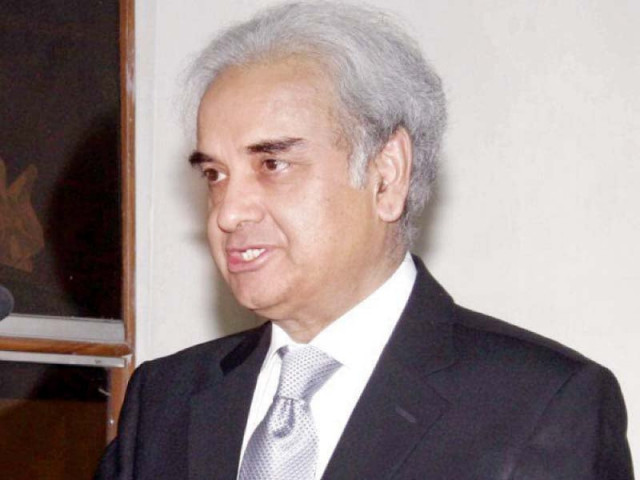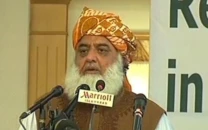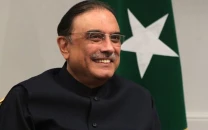Legally undefined: SC asks if a constitutional amendment can be quashed
Says it is not yet decided whether the Constitution has a basic structure or not

Says it is not yet decided whether the Constitution has a basic structure or not. PHOTO: FILE
The top judge of the Supreme Court raised questions about the possibility of striking down any amendment on the grounds of basic structure theory, saying it isn’t clear whether or not the Constitution has such a structure.
Heading the Supreme Court’s 17-judge bench, Chief Justice Nasirul Mulk was hearing on Tuesday several constitutional petitions against the passage of the 18th and 21st constitutional amendments.
In 2010, parliament had unanimously passed the 18th constitutional amendment, wherein a new procedure was introduced for appointment of superior court judges.
According to the new procedure, two constitutional bodies – Judicial Commission of Pakistan (JCP) and a parliamentary committee – were formed for judges’ appointment.

However, several bar associations and individuals challenged the constitutional amendment in the apex court, which on October 21, 2010 gave a short order, proposing further changes in the procedure of judges’ appointment.
Parliament, while accepting the top court’s proposals, passed the 19th amendment, wherein a new method of judges’ appointment was passed. However, the top court resumed hearing of the 18th constitutional amendment case– along with petitions against 21st constitutional amendment – as the case was still pending with the court.
Appearing before bench, Hamid Khan, counsel for different bar associations, stated that although they have no objection over working of the JCP the role of the parliamentary committee ought to be abolished as it violates independence of the judiciary and politicises the process of judges’ appointment.
On this, the CJP pointed out there are glitches in every new system but these issues get resolved over a period of time. “In case of the procedure of judges’ appointment, there were problems but later on, with the passage of time, the SC gave judgment over the functioning of parliamentary committee on judges’ appointment and the problems have been settled down,” he said. Another member of the bench, Justice Asif Saeed Khosa, observed that there is whole background to the creation of parliamentary committee on judges’ appointment.
He said there were two resolutions of Pakistan Bar Council as well as one resolution of Supreme Court Bar Association, demanding amendments in the procedure of judges’ appointment. Later on, then chief justice Saeeduz Zaman Siddiqui proposed a judicial commission in this regard.
“This demand went in the public domain and Charter of Democracy was signed between two biggest political parties (PPP& PML-N) in 2005, wherein a new method of judges’ appointment was proposed,” he said.
“Later, both parties emerged as the biggest parties in the 2008 elections and they unanimously passed a constitutional amendment, wherein parliamentary committee was introduced,” he said, adding: “Things are under control as it is the judicial commission not parliamentarians that introduce the candidate judges.”
The bench observed that independence of judiciary is defined by the apex court but now the verdict was delivered on parliament’s supremacy as well as limitations of parliament, when it amends the Constitution. Later, the hearing was adjourned till today (Wednesday).
AGP rejects ministry proposal
Sources in Attorney General for Pakistan (AGP) office revealed to The Express Tribune that the AGP Salman Aslam Butt has refused to accept the law ministry’s proposal to engage more than one dozen private lawyers to defend 21st amendment.
Earlier, during the previous regime, millions of rupees were handed out to private counsels in legal fees in high profile cases, including the 18th amendment case.
Published in The Express Tribune, April 29th, 2015.


1724319076-0/Untitled-design-(5)1724319076-0-208x130.webp)
















COMMENTS
Comments are moderated and generally will be posted if they are on-topic and not abusive.
For more information, please see our Comments FAQ